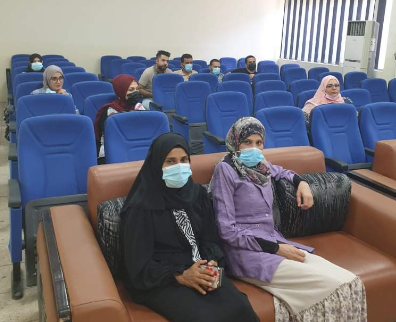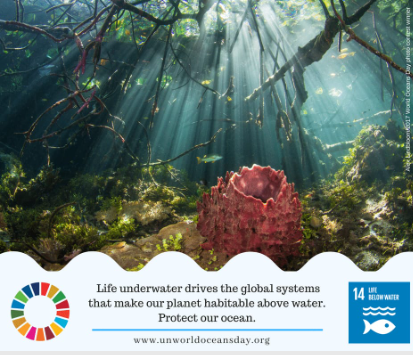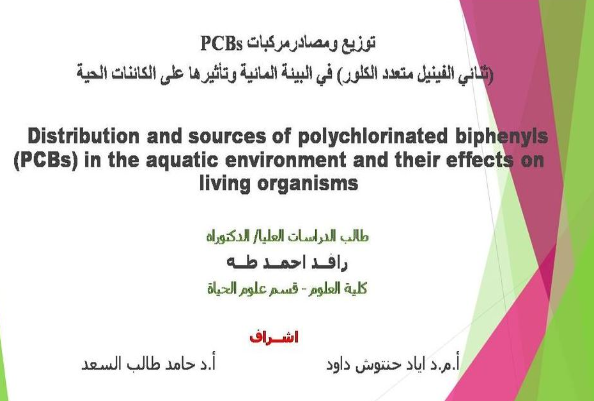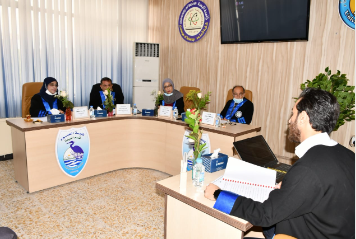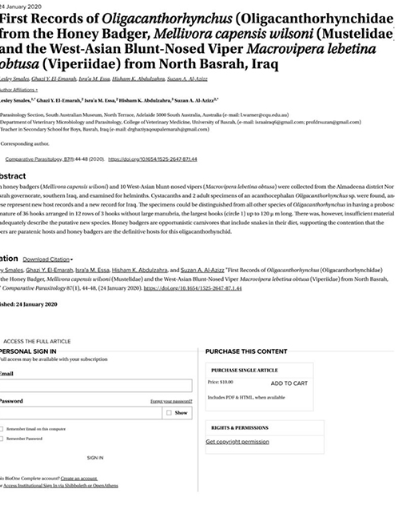![]()
Educational programmes on ecosystems (looking at wild flora and fauna)
(Activities of 2022)
The College of Agriculture at the University of Basrah organised a scientific symposium on Iraqi aquatic organisms that are threatened with extinction and ways to preserve them, with the participation of teachers from the Department of Fish and Marine Resources. The symposium aims to shed light on the Iraqi aquatic life that is threatened with extinction, the conditions affecting it, ways to avoid it, and developing solutions to preserve the remaining species. The symposium included a number of scientific lectures that dealt with fish, birds, aquatic plants, large invertebrates, amphibians, reptiles, and mammals, as well as endangered aquatic organisms. Invasive animals, a lack of marine reefs, and a lack of adequate studies to identify aquatic life at risk of extinction.
A seminar entitled aquatic plants and the affecting of environmental factors on their spreading hold at the University of Basrah/College of Science, Department of Ecology. the presenter, M.Sc. student Haifa Afrit Jheil demonstrate the most important objectives of the effect of various environmental factors on the growth and diversity of aquatic plants, in addition to determining and distributing the spread of aquatic plants in the studied area, and observing the factors and their relationship with plants, seasonally and locally.
Goal 14 of the United Nations Sustainable Development Goals, is to “preserve the oceans, seas and marine resources for sustainable development” and scientists have just put together a 30-year plan to make it happen. Despite rapidly increasing temperatures, increasing acidification, plastic pollution, and growing dead zones. And other environmental concerns borne by humanity, marine scientists believe that our underwater ecosystems can be restored and thrive again. The new plan points to the resilience of many marine species as a ray of hope for the future. Marine scientists suggest that if he can give these species a chance to recover, marine life can be regenerated within a generation. We are at a point where we can choose between the legacy of a resilient and vibrant ocean or an irreversibly turbulent ocean
The College of Science at the University of Basrah hold an electronic panel discussion on (the distribution and sources of PCBs in the aquatic environment and their impact on living organisms for a doctoral graduate student / Rafid Ahmed Taha). The environment from various industrial activities such as electric power plants, oil refineries and other industries, and agricultural activities such as the use of fertilizers and agricultural pesticides. The study included evaluating the concentrations of polychlorinated biphenyl pollutants in water, sediments and some living organisms and showing the effect of the toxicity of these compounds on the environment in general and on living organisms Specially.
A master's thesis discusses aquatic plants in the Shatt al-Arab, and a master's thesis in the Department of Ecology at the College of Science/University of Basrah discussed an ecological study of aquatic plants in the Shatt al-Arab near Basrah, southern Iraq. The thesis aims to identify the distribution and presence of aquatic plants in the Shatt al-Arab and the environmental factors affecting their growth and spread. The thesis concluded that there are 22 species of plants belonging to 17 families, 11 of which are aquatic plants and 11 terrestrial plants that love moisture. The letter recommended keeping Shatt al-Arab clean.
A research team from the College of Veterinary Medicine at the University of Basrah, in cooperation with an Australian research team, identified parasites of the spiny-head type recorded for the first time in Iraq. The research team, consisting of Dr. Ghazi Yaqoub Al-Amara, Dr. Suzan Abdul-Jabbar Abdul-Aziz, and the teacher, Israa Mohsen Issa, with the participation of Iraqi wildlife researcher Hisham Khairallah Abdul-Zahra, and in cooperation with an Australian research team composed of Prof. Dr. Lesley Smales, a specialist in spiny-headed parasites at the Australian Museum of Natural History.


